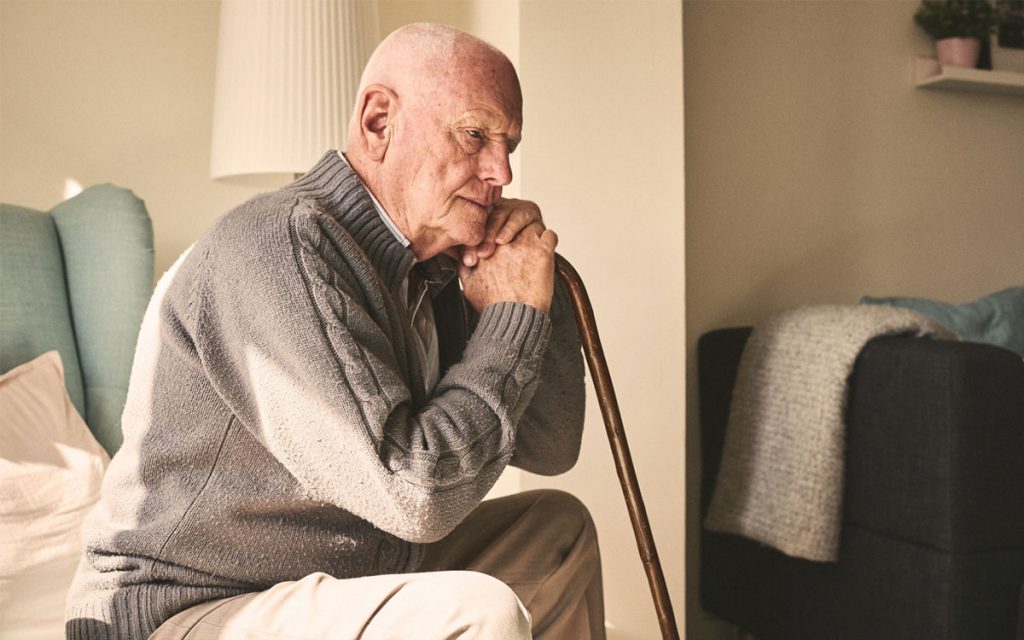Misanthropes aside, people generally like other people. Social interactions give us energy and enthusiasm (even for introverts, when social interaction is limited to smaller doses). Lunch with a friend or dinner with the family, taking a class at the local community college, or even just a short and simple conversation with the cashier at your supermarket–they’re the little interactions that fill our lives with the spark of connection.
Untreated hearing loss has a way of making all of those interactions more challenging and frustrating. And when that happens, a loss of hearing can lead to a loss of friendships, to loneliness, isolation, and even depression.
How hearing loss can isolate you
Hearing loss can sneak up on you. Maybe you start missing phone calls or deliveries because you don’t hear your ringtone or your doorbell. Huh, you think. That’s never happened before.
And that’s when you might notice other routine social interactions becoming more difficult. One of the first signs of hearing loss is often having trouble tracking conversations in noisy rooms. So maybe you stop going to work happy hour at the bar downtown because you just can’t hear anything anyway.
If you stop going to happy hour, the way your co-workers treat you may change–they may think you’re just blowing them off and respond in kind. Those kinds of unintentionally fraught interactions (or lack thereof) may start to become more and more common.
Hearing loss and family
But your relationship with your family is safe, right? Everyone’s experience will be different, of course, but even the strongest familial relationships are susceptible to this kind of social isolation. Discussions with your family members, for example, could become especially frustrating–especially if your only options are to ask for repeated clarifications or resign yourself to not hearing what someone said.
These types of encounters can quickly progress from a necessary frustration to something to simply be avoided.
Consequences of loneliness and isolation
We’re used to thinking of loneliness as a purely emotional problem–something that makes you feel kind of crummy but which won’t have much of an impact on you physically. It turns out there are serious mental and physical consequences for long term loneliness and isolation:
- Social isolation can hasten cognitive decline, in some cases raising your risks for dementia or Alzheimer’s disease. According to one study, untreated hearing loss increased the risk of dementia by up to 50%.
- Long-term loneliness and isolation can also lead to the formation of depression and anxiety symptoms. According to that same study, the risk of depression and anxiety rose by nearly 30%.
- Isolation can exacerbate certain medical problems. A common example is if you were to fall on your kitchen floor and find yourself unable to get up or reach a phone; the more isolated you are, the longer you might find yourself stuck on the floor (which can lead to significant medical issues).
Solutions to keep you plugged in
That might all sound a little dire. We’ll forgive you for wanting to stop and take a breath! But here’s the uplifting part: much of this is preventable. It’s untreated hearing loss that generally leads to this kind of loneliness and depression.
The goal for those with hearing loss, then, should be to ensure that they are seeking out adequate treatment as promptly as possible. The more your treatment can compensate for your hearing loss, the less socially isolated you will be.
The most common form of hearing loss treatment is a hearing aid. And once you’ve become acclimated to your hearing aid, you’ll be able to carry on conversations with practiced ease.
Staying connected
There are so many advantages to staving off loneliness and staying connected to the people around you. The bigger your support system is, the more resources you’ll have available when you need them–the power of such a support system, over time, is not to be underestimated.
But we also should not discount just how useful it can be to simply have joyful relationships in your life–to have people around you who can provide that spark of connection. Playing a game of bridge with a group of friends from your community or watching a baseball game with your family can help keep you engaged with your friends and family.
Treating your hearing loss can help keep you independent–and in the process, help keep you connected.


